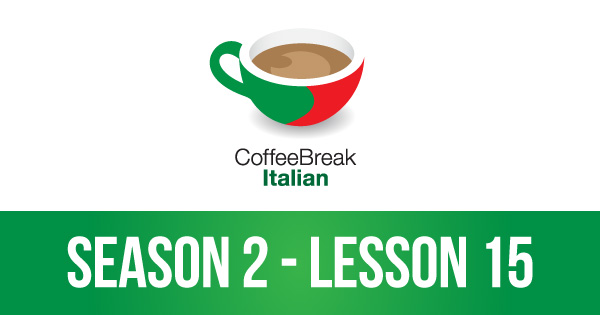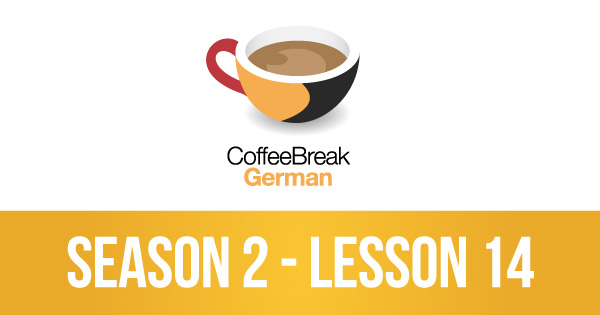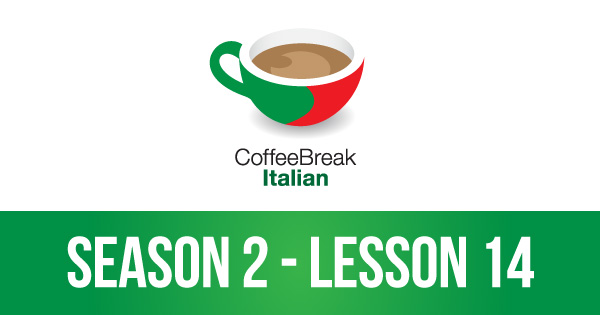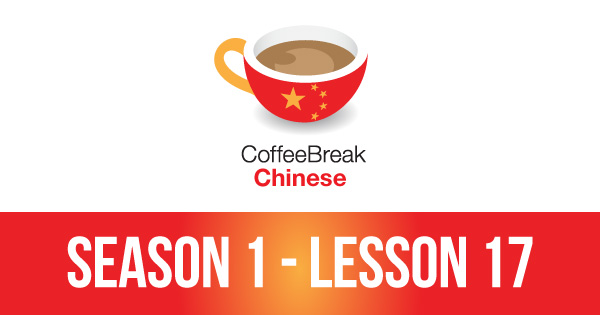In this lesson we’re continuing our study of ne and introducing a new pronoun, ci. Both of these words are small, but exceptionally useful, and you’ll learn how to use them in many situations.
Month: August 2017
CBG 2.14 | Mark hat bemerkt, dass diese Lektion schwierig ist
Learn how to gossip in German! In this lesson we’ll be looking at reported speech and how this works with dass. You’ll learn how to say who said what to whom, of course using the correct grammatical constructions.
Episode 8 – Coffee Break Conversations
In this episode of Coffee Break Conversations, Mark is joined by Tetsu Yung, one of the organisers of the Langfest conference taking place next weekend in Montreal. Mark’s presenting at the conference and Tetsu shares more information about Langfest, a celebration of languages and language-learning.
To find out more about Langfest, visit the official site here.
CBC 1.18 | Zuò dìtiè èrshí fēnzhōng
In this lesson of Coffee Break Chinese we’re looking at the topic of getting around the town. You’ll develop your range of vocabulary for asking for directions – and understanding the answers – and you’ll learn more vocabulary and structures to help you deal with public transport in China.
CBI 2.14 | Abbiamo delle belle mele rosse
In this lesson we’ll be looking at the partitive article – the technical name for how to translate “some” in Italian. We’re using the context of buying food so you’ll learn how to ask for some cheese, del formaggio, some cream, della panna, and lots more. This topic also enables us to look at the word ne, and we’ll see how easy it is to use this tiny, but powerful, word.
CBG 2.13 | Wie viel Schokolade isst du jede Woche?
In this episode of Coffee Break German we’ll be learning how to translate “much”, “many”, “some”, “few”, and lots more quantifying words – something learners often find difficult. By the end of this lesson you’ll be able to talk confidently in German using the words viel(e), wenig(e), etwas, manche, and say how much chocolate you eat, how many glasses of water you drink, or how many portions of fruit you have.
CBC 1.17 | Bówùguǎn jǐ diǎn kāimén? – Tourist information in Chinese
In this episode of Coffee Break Chinese you’ll learn to ask questions in the tourist information office or at your hotel. We take the time topic further by looking at more complex times like “half past” and “quarter to”, and we also cover opening and closing times. By the end of this lesson you’ll be able to ask questions like “what can you do here?” and say what you’d like to visit, and you’ll understand the Mandarin responses you may hear in reply. This is the perfect lesson to study before a trip to China!
CBI 2.13 | Questo libro è in italiano, ma quello è in francese
In this lesson you’ll learn to use the demonstrative adjectives questo and quello, meaning “this” and “that”. You’ll also learn to use the demonstrative pronoun forms, meaning “this one” and “that one”. There are a few things you need to remember, particularly with quello, because the forms change slightly depending on whether you’re using the adjective or pronoun forms. You’ll build on what you know already with this lesson, and there’s further practise with the help of translations and a dialogue.









